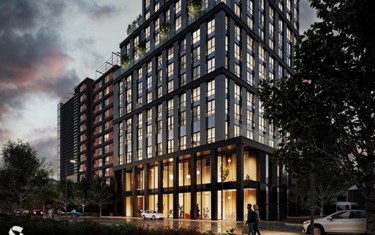RPTI Scotland Director Caroline Brown reflects on how the Edinburgh Book Festival relates to perspectives in planning.
August in Edinburgh is pretty special. The weather is often warm, even if not always sunny, and the city is alive with the extraordinary spectacle of the Festival. For about 4 weeks the city hosts not one, but several festivals including: the Arts Festival, the Edinburgh Fringe, Edinburgh International Festival and the Edinburgh International Book Festival.
The Fringe is the famous bit with comedians, magicians, improvisation and theatre performed in co-opted spaces from church halls to bars and even public toilets. But, my favourite of them all is the Book Festival with its broad-ranging programme where ideas are shared, challenged and discussed; talks cover all sorts of political, cultural and scientific topics and there’s a massive bookshop. If you are lucky, then you’ll also have the chance to rub shoulders with authors and other notable figures, like last year when I stood next to Nicola Sturgeon and Alan Little at the Book Festival bar…
This year the Book Festival the talks included Dr Hannah Ritchie talking about her work as a data scientist and her book ‘Not the End of the World’. In the book Dr Ritchie explores seven of the biggest sustainability challenges, and unpacks the data behind the issues and potential solutions. It’s a great book, and it was a thought provoking discussion which really resonated with the RTPI Scotland policy team. Dr Ritchie emphasised several themes that recur in our responses to Scottish policy consultations, among them the importance of perspective and evidence.
The need for evidence and data is an obvious one – but perspective here really means assessing the contribution that a specific intervention might make to the bigger problem.
At the household level for example, switching off the lights will have much less of an impact than limiting the length of a morning shower, since LED lights only use about 20 Watts per hour compared to upwards of 75000 Watts per hour for an electric shower*. Applying this to the planning context, there’s room to apply some perspective to proposals coming forward to streamline and improve the planning system.
Earlier in the year, we responded to an important Scottish Government consultation on Investing in Planning which outlined 14 new proposals around resourcing in the Scottish planning system. Those 14 actions are in addition to 15 ongoing actions such as the work of the National Planning Improvement Champion, extending permitted development rights and introducing Chief Planning Officers. All of that to say: there is a lot going on in the Scottish planning system, and lots of ideas about how and where to improve and streamline the system and enable delivery.
The RTPI Scotland consultation response made the case for an underlying resourcing framework to support this work – making it possible to see which parts of the system are being targeted, and to assess the relative contribution of each intervention to the bigger picture. We don’t necessarily have enough supporting data to analyse all of the options on the table, but it’s useful to think about the underlying theories of change and the likely impacts of each intervention on the big picture. Like Hannah Ritchie, I’m optimistic about the future and think evidence-informed action is the key to achieving our goals.
* Check out Mike Berners-Lee’s book ‘How bad are bananas’ for the carbon footprint of everything


